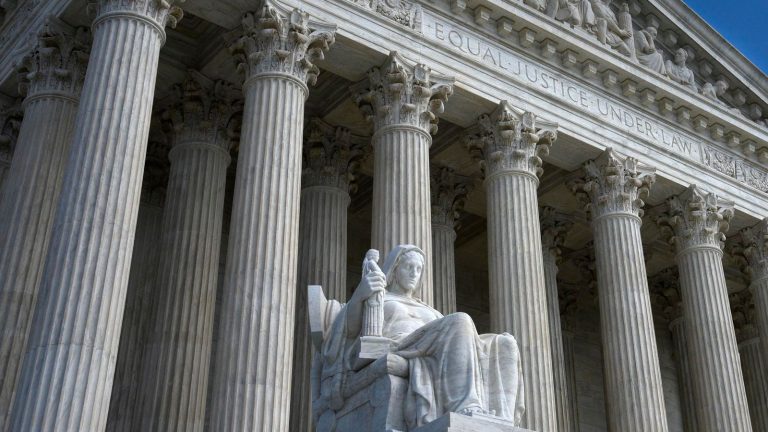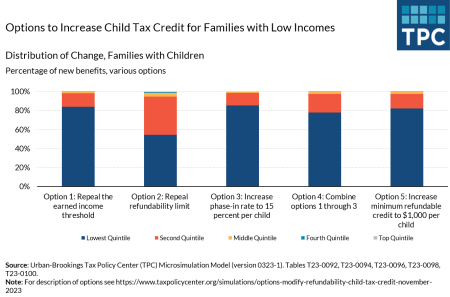Former House Speaker Paul Ryan (R-Ohio) recently warned that a “lot of the tax code would be unconstitutional” if the US Supreme Court rules for the petitioners in Moore v. United States, a case that challenges whether Congress may tax “unrealized” income. Among the laws in danger are those that Congress over many decades has enacted to stem abuses in cross-border and capital-market transactions. As I describe in greater detail in a new Tax Notes article, If the Court invalidates these rules, it will reopen loopholes, strip away Congress’s ability to prevent future abuses, and undermine our country’s fiscal health.
The petitioners in Moore are trying to revive the “realization” requirement from a 1920 case, Macomber v. Eisner. In Macomber, the Court defined income strictly as gains from labor or capital that are “received or drawn by the recipient (the taxpayer) for his separate use.”
However, as the Court later explained, the rule that income is not taxable until realized is merely “founded on administrative convenience.” In other words, realization is not about what is income, but when income should be taken into account for tax purposes. For example, a sale or other disposition of property is a simple and good time to measure gain or loss for tax purposes. And the sale generates cash to pay any tax due, which is helpful to the taxpayer. But, sometimes, a sale is not needed.
Taking its cue from later decisions by the courts, Congress treats realization as a worthy goal for tax policy, but not a constitutional requirement. As appropriate, Congress departs from the rule to reflect income accurately and to curb tax avoidance. Those departures are critical to create a tax system that reflects real-world economics and taxpayer behavior.
Congress’s earliest departure from Macomber’s realization rule came several years later, after US taxpayers had created hundreds of “incorporated pocketbooks” in foreign jurisdictions with low or no taxes on income. In response, Congress in 1937 assigned the income of these “foreign personal holding companies” to their US shareholders and held shareholders personally responsible for any taxes due, disregarding the separate entity of their corporations.
Congress took a similar approach in 1962 to prevent US-based multinational corporations from shifting profits on passive investments to tax havens abroad to avoid US taxation. The legislators added a tax on US shareholders of controlled foreign corporations on the corporations’ undistributed interest, dividends, royalties, and other forms of income that are easily offshored.
Over the years, Congress has continued to tax investment income that has not yet been received by the investor. In 1969. Congress focused on zero-coupon bonds, which pay their full interest at maturity instead of just annually. Historically, the bondholders had not been taxed on the interest until they collected it when the bond matured. But the bond issuers were deducting the eventual interest payment over the life of the bond. Congress ended this discrepancy by taxing the imputed interest accruing to the bondholders each year, even though they had not received it (and in fact, in a default, that interest might never be received).
In the 1970s, a new abuse emerged in the financial marketplace: straddles constructed with exchange-traded commodities contracts (called “regulated futures contracts”). Taxpayers could hold multiple contracts, which often offset each other, and sell those with losses at the end of the year (and keep those with gains). With this technique, taxpayers could defer recognizing income and convert short-term capital gains into lower-taxed long-term capital gains). Congress ended this practice in 1981 by requiring regulated futures contracts to be “marked to market”, which is a method of accounting that treats property as sold at market, with gains or losses recognized, at the end of the year. Again, income that had not been “received” was taxed in order to reflect financial realities and make the tax code fairer.
Congress continued to address abuses in the capital markets in the 1990s. Lawmakers extended the mark-to-market accounting method to securities dealers, then later began taxing “constructive sales” of investors who sought to rid themselves of the risk of owning appreciated stock without selling the stock and triggering taxes. In the last few years, Congress has continued to explore departures from realization, including extending mark-to-market to derivatives, to curb additional abuses.
As the Joint Committee on Taxation (JCT) reported to Congress in 1995, Macomber remains a lonely outlier as “the only judicial decision where imposition of a federal tax was found to be unconstitutional on the ground that the taxpayer had not yet realized income. . . .” JCT’s statement remains true today.
Congress’s existing and future efforts to fairly and accurately tax complex international and financial arrangements are potentially in jeopardy if a Moore ruling breathes new life into Macomber and its realization rule. At a minimum, it would cast a cloud of uncertainty over several well-established and important taxes which could be resolved only by more litigation.
Upending our tax code and reopening loopholes would be damaging to our country’s fiscal health. The political will to raise taxes is dwindling even as the level of services the government is expected to provide is rising. As a matter of fiscal prudence and good practice, Congress must be able to craft tax laws that keep pace with increasingly sophisticated markets without fear of judicial reproach.
Read the full article here








